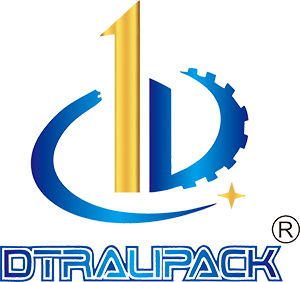Understanding Box Forming Machines: Revolutionizing Packaging Efficiency
Time:
2025-04-29 10:40
Source:
Box forming machines are pivotal in the manufacturing and packaging sectors, streamlining the process of creating cardboard boxes that protect and transport products efficiently. These machines automate the assembly of boxes from flat materials, significantly reducing labor costs and enhancing productivity. By understanding the complexities and advantages of box forming machines, businesses can optimize their packaging operations.
The primary function of a box forming machine is to convert flat cardboard or other packaging materials into three-dimensional boxes ready for use. This is typically achieved through a series of automated processes that include folding, gluing, and erecting the box. Many modern box forming machines are equipped with advanced technology, allowing them to handle various box styles and sizes. This versatility is particularly beneficial for companies that require a wide range of packaging solutions.
One of the most significant advantages of using a box forming machine is the increase in efficiency. Manual box assembly can be time-consuming and labor-intensive, often leading to inconsistencies and errors. In contrast, automated box forming machines operate at high speeds and maintain precise control over the assembly process, ensuring uniformity and quality in the finished products. This not only speeds up production rates but also allows companies to focus their human resources on more complex tasks that require critical thinking and creativity.
Moreover, box forming machines contribute to sustainability in packaging. By optimizing material usage and minimizing waste, these machines help companies reduce their environmental footprint. The ability to customize box sizes also means that excess materials are less likely to be produced, which is a significant step towards eco-friendly packaging practices.
In addition to these benefits, box forming machines are highly adaptable. They can accommodate various types of box designs, including regular slotted containers, die-cut boxes, and specialty boxes. This flexibility allows businesses to respond quickly to market demands and customize their packaging according to specific product requirements.
The applications of box forming machines extend across numerous industries, including food and beverage, electronics, consumer goods, and pharmaceuticals. Each of these sectors relies on effective packaging to ensure product safety, enhance shelf presence, and facilitate easier logistics. With the increased emphasis on automation and efficiency in manufacturing, the demand for box forming machines continues to grow.
In summary, box forming machines are an essential component of the modern packaging landscape. Their ability to automate the box creation process, improve efficiency, and support sustainability makes them a valuable investment for businesses looking to enhance their packaging operations. As industries evolve, the role of box forming machines will undoubtedly become even more crucial, driving innovation and efficiency across the board.
The primary function of a box forming machine is to convert flat cardboard or other packaging materials into three-dimensional boxes ready for use. This is typically achieved through a series of automated processes that include folding, gluing, and erecting the box. Many modern box forming machines are equipped with advanced technology, allowing them to handle various box styles and sizes. This versatility is particularly beneficial for companies that require a wide range of packaging solutions.
One of the most significant advantages of using a box forming machine is the increase in efficiency. Manual box assembly can be time-consuming and labor-intensive, often leading to inconsistencies and errors. In contrast, automated box forming machines operate at high speeds and maintain precise control over the assembly process, ensuring uniformity and quality in the finished products. This not only speeds up production rates but also allows companies to focus their human resources on more complex tasks that require critical thinking and creativity.
Moreover, box forming machines contribute to sustainability in packaging. By optimizing material usage and minimizing waste, these machines help companies reduce their environmental footprint. The ability to customize box sizes also means that excess materials are less likely to be produced, which is a significant step towards eco-friendly packaging practices.
In addition to these benefits, box forming machines are highly adaptable. They can accommodate various types of box designs, including regular slotted containers, die-cut boxes, and specialty boxes. This flexibility allows businesses to respond quickly to market demands and customize their packaging according to specific product requirements.
The applications of box forming machines extend across numerous industries, including food and beverage, electronics, consumer goods, and pharmaceuticals. Each of these sectors relies on effective packaging to ensure product safety, enhance shelf presence, and facilitate easier logistics. With the increased emphasis on automation and efficiency in manufacturing, the demand for box forming machines continues to grow.
In summary, box forming machines are an essential component of the modern packaging landscape. Their ability to automate the box creation process, improve efficiency, and support sustainability makes them a valuable investment for businesses looking to enhance their packaging operations. As industries evolve, the role of box forming machines will undoubtedly become even more crucial, driving innovation and efficiency across the board.
Box Forming Machine
News



